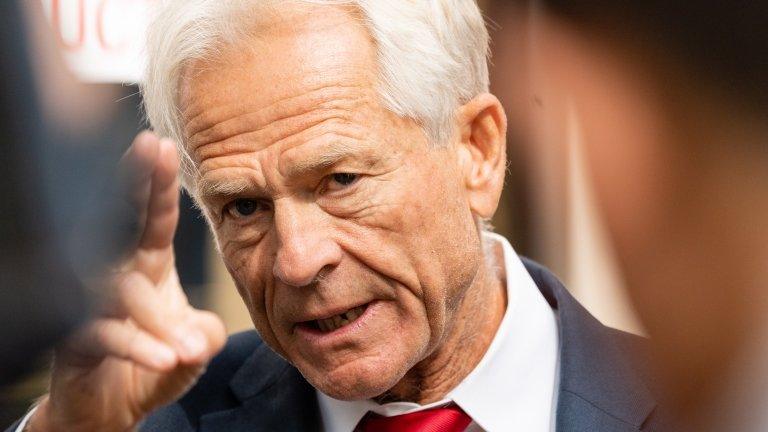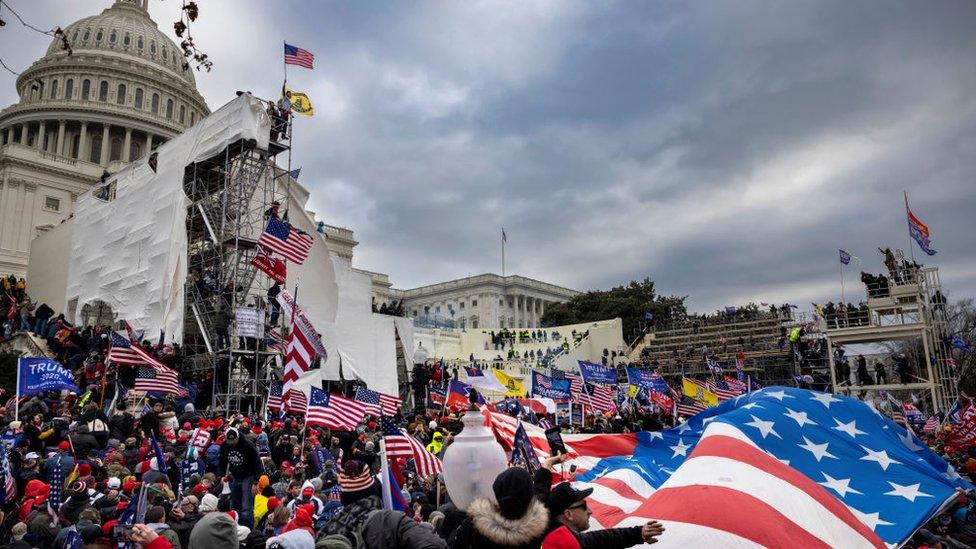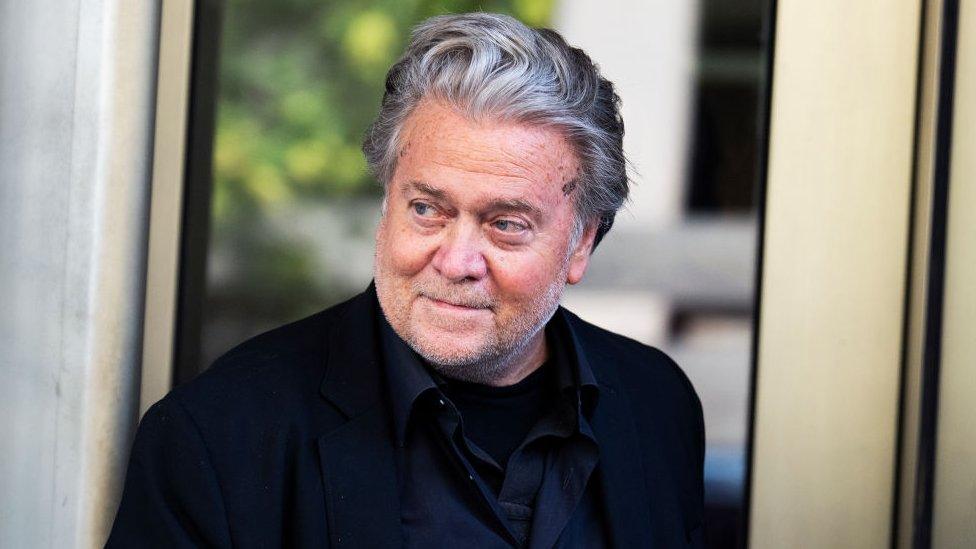Peter Navarro: Ex-Trump adviser sentenced for contempt of Congress
- Published
Watch: Ex-Trump trade adviser speaks after prison sentence
Peter Navarro, former trade adviser to Donald Trump, has been sentenced to four months in prison and a $9,500 (£7,500) fine for contempt of Congress.
Navarro was convicted in September after he ignored a subpoena from a House committee investigating alleged efforts to overturn the 2020 election.
Federal prosecutors said he "chose allegiance to former President Donald Trump over the rule of law".
Navarro has filed an appeal and vowed to take the case to the Supreme Court.
Prosecutors had asked that Navarro, 74, serve a six-month sentence. His lawyers claimed he was "not an insurrectionist" and requested that he serve no jail time.
Navarro was served with a subpoena by a US House of Representatives select committee in February 2022.
But he did not hand over any of the requested emails or documents or appear to testify before the Democratic-led panel.
When contacted by the committee, Navarro said Mr Trump had instructed him to cite executive privilege. This is a legal principle that allows certain White House communications to be kept under private.
But the judge ruled that there was no evidence that Mr Trump could have requested that, or that executive privilege could have permitted Navarro to ignore the committee's summons.
He was found guilty by the 12-member jury after four hours of deliberations, following a trial in Washington DC last year that lasted two days.
Addressing the court on Thursday, Judge Amit Mehta said he had a "great deal of respect" for Navarro, adding that it is "disappointing how he behaved".
"It's those kinds of statements from somebody who knows better … that contribute to why our politics are so corrosive. It is regrettable."
The judge also noted the work Navarro did with US businesses to speed up production of Covid-19 protective equipment during the pandemic, saying "I do think the country owes you a debt of gratitude to you for your work with the coronavirus".
In his 2021 book, In Trump Time, Navarro said he was the architect of a strategy to challenge the 2020 election results, claiming widespread voter fraud.
The plan was for congressional Republicans to delay certification of President Joe Biden's victory.
The House committee said Navarro's claims of massive ballot fraud had been exposed as baseless by state and local officials.
Navarro, addressing the judge, said he was "disappointed" that he was not permitted to raise an executive privilege defence.
"The minute that violence erupted on Capitol Hill was one of the worst moments of my life," he said.
Judge Mehta said that Navarro's actions sought to thwart "a significant effort by Congress to get to the bottom of a terrible day in the country's history".
"They had a job to do and you made it harder. It is really that simple," he added.
Navarro, speaking to reporters after his sentencing, said he was "caught in a battle between two competing branches of government", referring to Congress and the White House.
He called his case "destined for the Supreme Court", saying it should decide "whether a senior White House aide and alter ego of the president can be compelled to testify by Congress".
His case has parallels with another Trump aide who was convicted of defying the 6 January committee.
Former Trump campaign strategist Steve Bannon was convicted of two counts of contempt for refusing the House committee's legal summons in July 2022.
Bannon was also sentenced to four months in jail, but has remained free while his defence team appeals against the conviction.
Related topics
- Published4 June 2022

- Published2 August 2023

- Published20 October 2022
